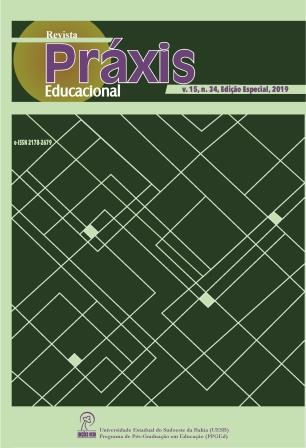MATHEMATICAL SKILLS AT BNCC: CURRICULAR IMPLICATIONS
DOI:
https://doi.org/10.22481/praxisedu.v15i34.5461Palabras clave:
Mathematical education, National common curricular base, School curriculumResumen
The present work has the objective of analyzing the specific Mathematical Competences for the Basic Teaching of the National Curricular Common Base (BNCC). To do this, we selected excerpts from this document as research material. As a theoretical-methodological reference we assume the thinking of Michel Foucault and Zigmunt Bauman and their interlocutions with the field of Mathematical Education. Based on the material analysis, we understand that Mathematics, as a curricular component, is presented as a knowledge to be applied and used by the student in this self-responsibility and flexibility, because it is up to them to find ways to use it. The application and the solution of problems are pointed out as competences to be developed in Basic Education and made effective by the school curriculum. The discussions about the competences elucidated by BNCC show that this document serves the new global economic configuration. The document establishes a way of mathematizing and acting, as being important for the learning processes












